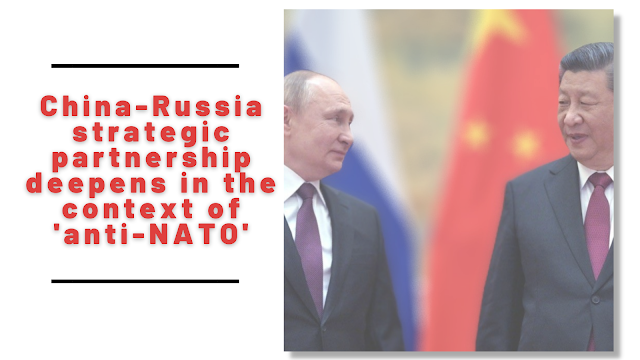1 Mayis,2,127 saat,1,1789,1,1984,1,2.mahmud,1,2003,2,2007,1,2009 Honduras Darbesi,1,2009 local elections istanbul,1,2009 yerel secimler analiz,1,2010-2011 sampiyon fenerbahce,1,2011 chp secim,1,2014,2,28 subat,1,80-039ler,1,90-039lar,1,A.Demir,1,A.Gücü,1,ab,5,abbas kiarostami,3,abd,107,abd askeri,1,abd dış politikası,7,abd ordusu,6,abd savunma bakanlığı,1,abd sinema sanayi,1,abd-çin ilişkileri,4,abdel fattah al-burhan,1,Abdulbari Atwan,1,abdullah abdullah,2,acik kaynak,1,aclik,1,adamin biri doktora gitmis...gidis o gidis,1,adsense,1,afd,1,afgan,3,afgan halki,3,afgan ordusu,3,afganistan,21,afganistan güvenliği,2,afganistan seçimleri,2,afganistanda ne yapmali,1,afghan war,1,afghanistan,5,afis,1,africa,1,afrika,7,Agenda,1,ahmedi nejad,2,ahmedinecad,1,ahmedinejad,3,ahmet davutoglu,2,ahmet davutoğlu,1,ak parti,3,akademik yazmak,1,akita,1,aktutun jandarma,2,aktutun karakolu,2,al pacino,1,Aleksey Petrosian,1,ales,1,alex,1,ali surmeli,1,ali şen,1,aliyev,1,alkislarlayasiyorum.com,1,almanya,4,alternative columnist,1,altinizcizdiklerim,1,america,4,american,1,american health reform,1,amerika,16,Amerika,1,amerika saglik reformu,1,amerikan dis politikasi,1,amerikan futbolu,1,amiri,1,anadol,1,anadol stc-16,1,anadolu,2,analiz,4,anayasa,1,and,1,animal,1,animasyon,2,ankara,2,ankaragucu,1,ankaragucu kume duser mi,1,apec,1,apple,1,arabesk,3,arap,1,arap bahari,2,arap basini,1,arap dunyasi,1,arap halk hareketleri,1,arctic,1,arog,1,artun yeres,1,asabiyye,1,asim velioglu,1,asker,17,asker TSK sava,1,askeri,2,askeri gelişim,1,askeri harcama,1,askerler,1,aslan,1,asphalt,1,asphalt paved,1,Asya,25,ata demirer,2,ata nirun,1,ateşgücü,1,aukus,2,australia,1,avci,1,Avcilar-Zincirlikuyu,1,avrasya,2,avrasya projesi ve kirgizistan,1,avrupa,3,avustralya,3,axis shift,1,ayaz,1,Aydın,1,aykut hoca,1,aykut kocaman,3,aziz yildirim,1,b sinifi amerikan filmleri,1,baas,1,bacasiz sanayi,1,bada,1,bağdadi,1,bahreyn,1,baklava,1,balıkçı tekneleri,1,barack,1,barack husein obama,2,barack huseyin obama turkiye'de,1,barack hussein obama,1,barack obama,5,Barack Obama Cairo Speech,1,barack obama yemin toreni izle,1,Barack Obama'nın Mısır Konuşması,1,barış görüşmeleri,1,barlar sokagi,1,barry newman,1,barzani,1,Baskan,2,baskan obama,1,baskanlik,1,baskanlik sistemi nedir,1,bati libya,1,bayrak,2,bayram,1,bbp,1,bechtel,1,bedrettin,1,behzat,1,behzat c,1,belediye,3,belucistan,2,benzin,1,benzin 4 lira,1,benzine zam,1,besiktas,1,beşir,1,beyaz,1,beyazit sahaflar carsisi,1,beyazit sahaflar carsisi nerede,1,Biden,8,big data,1,bilgi,1,bilimkurgu,1,bir zamanlar kuveyt,1,bira,1,biscuit,1,bitcoin,2,bitcoin wallet,1,biyoyakit,1,blackwater,1,Blog,32,blog servisleri,1,blog yazarlığı,2,blog yazmaya neden basladim,1,blogcu,17,blogcu ordusu,1,blogcu.com,3,blogculuk,4,blogger,12,blogger acildi,1,blogger army,1,blogger.com,1,blogging,2,blogosfer,2,blogspot,1,bm,1,bm 1973 sayili karar,1,bm raporu,1,bodrum,2,boko haram,1,bolivya,2,bolton,1,bolunur mu,1,bop,1,bosch,1,bölgesel güvenlik,1,bölgesel hegemonya,2,bölgesel ittifak,1,brent,1,brezilya,1,britain,1,britanya,1,bruce lee,1,bruce willis,1,bugun gazetesi,1,bukres,1,burger,1,bursa,4,bush,3,büyük doğu dergisi,1,cam tavan sendromu,1,carr,1,carter,1,catisma,2,cavit akarsu,1,cem y?lmaz,1,cem yılmaz,2,cemal aydin,1,ceo,1,ceto,1,cevat akarsu,1,chabahar,1,challenge,1,charles bukowski,1,charles dickens,1,charlize theron,1,china,25,chp,5,chp kurultay,1,chris hedges,1,christopher nolan,1,churchill,1,cilgin proje,1,cin,3,cin ve obama,1,city architecture,1,clash of the titans,1,claus von stauffenberg,1,Cloudy With A Chance Of Meatballs,1,cocuk esirgeme kurumu,1,cocuklar,2,cokuluslu sirket,1,Cold War,1,competition,1,concrete,1,concrete road,1,coronavirus,1,covid-19,1,cox,1,cpec,1,Cumalikizik Village,1,cumhuriyet,2,cumhuriyet halk partisi,1,cumhuriyetciler,1,cuneyt arkin,2,Ç.Rize,1,çatışma,1,Çeviriler,5,çin,76,çin dış politikası,2,çin ordusu,3,çin sineması,1,çin-pakistan,1,çin'in dış politikası,1,Çorum,1,dadas hasan,1,daglik karabag,1,Daniel Klein,1,danimarka,1,danny boyle,2,dante lam,1,david galula,1,davos,2,davutoglu,5,democracy,1,demokrasi,6,denge,4,deniz baykal,1,deniz milisleri,1,deniz ulke,1,deniz ulke aribogan,1,Dennis L. Okholm,1,deprem,2,deri,1,dersane,1,dershaneler,1,dev kedi,1,devlet,12,devlet nedir,1,devrim,9,devrim 2.0,1,devrim demirel,1,devrimci kaddafi,1,di caprio,2,dialogue,1,digiturk,1,dikiştutmaz sabri,1,diplomasi,5,diplomat,1,direktuvar,1,diriliş,1,dis politika,1,diyalog,1,diyarbakir,1,dizi,3,django,1,doctor parnassus,1,dodge challenger,1,dogu avrupa,1,dogu libya,1,doksanlar,1,doktor,1,doktrin,1,dolar,1,domuz gribi,1,Don elkins,1,donerci eminonu,1,dram,1,dudullu,1,dudullu postasi,1,durus,1,Dünya,63,dürüm,4,e-kitap,1,ebu ala el afri,1,egitim sistemi,1,egypt,1,ekmek,2,ekonomi,6,ekvador,1,el besir,1,el cenabi,1,el kaide,1,el mutlak,1,elektronik,1,eleştirel teori,1,eminonu,1,emniyet,1,emrah,1,emre akoz,1,en yasli blogcu,1,endonezya,1,enerji,2,england,1,english,28,eralp noyan,1,erdogan,1,Eric Von daniken,1,erol tas,1,erzurum,1,esad,3,eşref gani,2,etanol,2,etnik catisma,1,eugene safian,1,eve giden yol,1,evo morales,1,evsiz cocuklar,1,eyup,1,eyup sultan turbesi,1,factotum,1,fakir,1,fasizm,1,fast food,1,fazil say,1,felsefe,1,felsefe yapmaki flozof,1,felsefenin baslangic ilkeleri,1,felsefeye cagri,1,fener,1,fenerbahce-young boys maci analizi,1,Fenerbahçe,3,fenomen,1,fenomen dergisi,1,fetih 1453,1,fırın,1,filistin,1,film,9,film analiz,2,film elestirisi,1,foreign policy,1,forma,1,foto,3,fotograf,4,francis fukuyama,2,fransa,2,fransiz devrimi,3,franz oppenheimer,1,freida pinto,1,friendfeed,1,fsb,1,futurizm,1,fuze,1,fuze kalkani,1,fuze kalkani projesi,2,füze,1,G. Birliği,1,G.Antep,1,g20,1,g7,2,galaktikinsan,1,garanti,1,gastronomical racism,1,gates,1,gaza,1,gazete,3,gaziantep,1,gaziantep baklavacisi,1,gazze,4,gecekondu,1,gecekondu sava Irak ABD,1,gelecegin haritasi,1,gelecek,2,gelir adaletsizligi,1,gemi,2,genel baskan kilicdaroglu,1,genelkurmay,4,genelkurmay baskanligi,1,geopolitic,1,george bush,1,george clooney,1,george politzer,1,georgia,1,gerasimov,1,gerilim,2,germany,1,ghani,1,gida fiyatlari,1,giddens,1,global,1,global interregnum,1,gol,1,google,2,google keep,1,gozleme,1,graham fuller,1,gramsci,2,grotius,1,guc dengesi,1,gunes harekati,1,guney amerika darbeleri,1,guney sudan,1,guney sudan petrol boru hatti,1,gunluk kisisel gazete,1,guray,1,gursel tekin,1,guvenlik,3,guvercin ordusu,1,guzelyali,1,Gündem,30,güney asya stratejisi,1,güney kore,3,güvenlik,2,güvenlikleştirme,1,gwadar,3,haarp projesi,1,haber,3,haberler,2,haberturk,1,haberturk gazetesi,1,hachi,1,hachiko,1,Hachiko A Dog's Story,1,hadigari,1,haifa limanı,1,hakan balamir,1,hakkari,1,halford mackinder,1,halikarnas,1,halit ergenc,1,halk,4,halklar,1,halo,1,haluk bilginer,1,hamaney,1,hancock,1,hap veren amca,1,harekat,2,harem,1,hariri,1,harp akademileri,1,harun,1,hasan bulent kahraman,1,hayal,1,hayalet,1,hayat,3,hayvan partisi,1,hayy kitap,1,health care,1,heartland,1,hedging,1,hegemony,2,hegemonya,8,henry chinaski,1,henry kissinger,2,hibrit savaş,6,hindistan,5,hitler,1,hobbes,1,hobsbawm,1,hoffman,1,hollywood,1,honduras,1,hong kong,2,hong kong olayları,1,howard hawks,1,ht gazete,1,huawei,1,hububat,1,hukuk,1,hukumet,1,hurrem sultan,1,husnu mubarek,2,hussoloji,12,hybrid,1,hybrid warfare,1,ırak,3,Irak,15,ırak seçimleri,1,Iraq,2,ışid,2,Işid,1,ibrahim tatlises,1,icerik,1,icerik hirsizligi,1,idam,1,idealizm,3,idealizm nedir,1,ideoloji,1,iett,1,ihh,1,ihracat,1,iklim degisme,1,iklim savaslari,1,iktidar,1,ilk turk spor arabasi,1,ilker basbug,1,imdat bayram,1,imran khan,1,imza kampanyasi,1,inception,1,ingiltere,3,insani yardim gemisi,1,insani yardim vakfi,1,internet,7,ipad,1,ipad 2,1,ipek yolu,1,iphone,1,iphone 4,1,iraj,1,irakiye,1,iran,31,iran füze,1,iran nuclear,1,iran ordusu,1,iran presidential election,1,iran secimleri,2,iran sinemasi,3,iran ve nukleer,1,iran ve turkiye,1,iran ve twitter,1,iranian cinema,3,isci bayrami,1,isciler,1,iskender,1,iskender kebab,1,iskender kebap,1,iskender ve kizi,1,iskenderin kizi,1,islam devleti,1,israel,1,israil,11,İsrail,1,israil ordusu,1,issizlik,1,istanbul,10,istihbarat,1,istihdam,1,isvicre,1,isyan,2,işbirliği,2,itaatsizlik,1,italian,1,italya,2,italya'da fasizm,1,ithalat,1,iyi yazmak,1,james franco,1,japon,1,japon ordusu,1,japonya,4,japonya demokrat partisi,1,jeopolitik,3,jim carrey twitter,1,jinping,11,jintao abd'de,1,johnny deep,1,jokowi,1,journalism for citizen,1,kachin,1,kaddafi,9,kaddafinin oglu,1,kader,2,kadikoy,1,kadir topbas,2,kahvehane,1,kalkan,1,kalpgah,1,kamil koc,1,kan,5,kanada,1,kanal d,1,kanalistanbul,1,kanalizasyon,2,kanuni sultan suleyman,1,kaos,1,kapali carsi,1,kapitalizm,1,kar,1,karachi,1,karadeniz,1,karar,2,karate,1,karsiyaka,1,karsiyaka-kasimpasa mac analizi,1,kasım süleymani,1,kasimpasa,1,kaygisizlar,1,kayhan yildizoglu,1,kc-135,1,keep,1,kemal kilicdaroglu,5,kemal sunal,3,kentucky,1,kentucky fried chicken,3,kenya,2,kerrubi,1,kesanli ali destani,1,keşfolunmak,1,kfc,2,kfc panini burger,1,kırım,2,kilic disli kaplan,1,kim jong un,2,kiraathane,1,kirgizistan isyani,1,kissinger,1,Kitap,11,kitap özet,1,kitap özet indir,1,kitap özetleri,1,kiyamet,1,kofi annan,1,kofte yagmuru,1,kola,1,komedi,2,konstrüktivizm,1,konstrüktivizm nedir,1,konvansiyon,1,kopenhag school,1,kopru,1,korengal vadisi,1,korengal valley,1,koridor,1,korku,2,kovboy millet,1,kozyatagi,1,kral halife,1,kriz,2,kucuk emrah,1,kucuk mucahit,1,kulturel,1,kung-fu,1,kupa,1,kuresellesme,3,kuresellesme nedir,1,kurtlar vadisi 55.bolum,1,kurtlar vadisi pusu,4,kurtlar vadisi pusu 46.bolum izle,1,kurtlar vadisi pusu 47.bolum izle,1,kurtlar vadisi pusu analiz,1,kurtlar vadisi pusu yeni sezon,1,kuşak ve yol girişimi,3,kutup,1,kuzey irak,10,kuzey irak harekati,1,kuzey kore,4,kuzey suriye,1,küresel hegemony,1,küresel hegemonya,2,küresel imparatorluk,1,küresel rekabet,2,küresel ticaret,1,latin amerika,1,leap,1,leap motion,1,lebron james twitter,1,lee van cleef,1,lenin,1,leviathan,1,liberal uluslararası düzen,1,libya,13,libya turk insaat,1,libyada olaylar,1,libyali,1,lig,2,lig tv,1,liman,1,lopez,1,lubnan,1,lubnan hukumet krizi,1,luccarian,1,lübnan,2,mac analiz,1,mackinder,1,mahsun kirmizigul,1,Makale,223,malezyai el-kaide,1,maliki,1,manifesto,1,manolo,1,manset,3,manuel zelaya,1,Map of Energy,1,mars,1,marsa seyahat,1,martin scorsese,1,mattis,2,mavi marmara,2,mayıs,1,meatball,1,mecidiyekoy,1,mecliste konusma,1,media,1,medvedev,1,medya,9,mehdi savaşları,1,mehmet barlas,1,meksika ve blog,1,melih gokcek,1,memati,1,mendil satan cocuklar,1,merkel,1,meshur fasulyem,1,metal FIRTINA,1,metin erksan,1,metro,1,metrobus,3,Mevlana Celaleddin RUMİ ve NOSTRADAMUS,1,mexico,1,meydan,1,meyve sikacagi,1,meyve suyu,1,mezhep,1,mezopotamya,1,michael jackson,1,middle east and soft power turkey,1,milliyetçilik,1,minare,1,minare yasagi ve avrupa,1,mineral,1,misir,6,misir devrimi,1,misir halk isyani,1,misir isyani,1,misir ve devrim,1,misrata,1,mitrany,1,mizah,3,modern,3,modern tip,1,modernizm,1,moğolistan,1,mohsen makhmalbaf,3,morgenthau,1,mortgage,1,moskova,2,msn roportajlari,1,mubarek,4,mubharek,1,mucadele,2,mudahale,1,mudanya,1,mugla,1,muhalefet,1,muhammed yusuf,1,muharrem ince,1,muhendis,1,Muhiyddin-i ARABİ,1,muhsin yazicioglu,2,muhtesem yuzyil,2,multipolar world,1,murdoch,1,muro,1,musavi,1,musevi,1,muslum gurses,1,musluman kardesler,1,mussolini,1,mustafa sarigul,2,musterek dostumuz,1,myanmar,1,napolyon,2,nasa,1,nato,15,nato genel sekreter,1,nato isaf,1,nazi,1,nazi iktidari,1,necati cumali,1,necip fazıl kısakürek,1,Nedir?,2,nejat isler,1,nemeth,1,neo-pers imparatorluğu,1,Nevşehir,1,new england patriots,1,new york,1,new york'ta bes minare,1,newspaper,1,newyork,2,newyork giants,1,Nietzsche oldu Bir Hipopotam Olarak Yeniden Dogdu,1,nijerya,2,nuclear crisis,1,nufus sayimi,1,nukleer,2,nuri alco,1,nusayri,1,nükleer,1,nükleer görüşmeler,2,obama,20,obama doktrini,1,obama health care,1,obama kazandi,1,obama mecliste,1,obama saglik reformu amerika,1,obama ve jintao,1,obamanin afganistan plani belli oldu,1,obamanin meclis konusmasi,1,obor,1,okan bayulgen,1,okul,2,okuma,1,olaylar,1,Olive Riley,1,olumcul tuzak,1,omdurman muharebesi,1,one belt one road,7,online muhalefet,1,opec,1,operasyon,9,operasyon kızıl deniz,1,operation,1,operation red sea,1,operation valkyrie,1,ordu,14,orhan gencebay,1,ortadogu,8,ortadoğu,11,ortak bildiri,1,ortaklık,2,osetia,1,osmanli,2,osmanli imparatorlugu,2,osmanli ve modernlesme,1,otantik,1,otobus,1,otobus yolculugu,1,otosan,1,ottoman,1,oyuncak,1,ozel sektor,1,ozgurluk,1,pakistan,6,pakize suda,1,palestine,1,pandemi,1,panini,1,para,1,paradoks,1,parali asker,1,parali ordu,1,parlamento,1,parnassus film yorum,1,parti,1,parti kapatma,1,partnership,1,pasifik,3,pastane simidi,1,patriot,1,Pekin,1,penguen,1,penguen dergisi dudullu postasi,1,people,1,peres,1,performans,1,pes,1,pes 2012,1,pes 2012 fiyatı,1,pes 2012 kaç para olacak,1,petraus,1,petrol,9,petrol fiyatları,1,picnic,1,pierre loti tepesi,1,pirinc,1,pixar,3,piyasalar,1,pizza,1,pkk,1,Platon bir gün kolunda bir ornitorenkle bara girer,1,play-off,1,play-off sistemi,1,polat,1,polat alemdar,3,policy,1,polis,2,politic,2,political party for animals,1,politika,5,politzer,1,polonya,1,pompeo,2,pop,1,populer,1,populer kultur,2,poster,1,posture,1,powerful turkey,1,prebhakaran,2,president,3,prime minister,1,problem,3,proje,2,proud,1,psikoloji,1,pulp fiction,1,putin,13,pyd,1,quentin tarantino,1,radikal hareketler,1,rafael correa,1,rajapaksa,2,raki,1,rasmussun,1,realizm,2,realizm nedir,1,recep ivedik,2,recep ivedik 2,1,recep tayyip erdogan,1,reel politik,1,referandum,2,rekabet,3,reklam,1,resim,1,restrepo,1,resurgence,1,richard gere,1,richard holbrooke,1,richard sarafian,1,rivalry,5,road,1,robert cox,1,robert scheer,1,robertdeniro,1,roj tv,1,roportaj,1,ruhlar,1,rupert,1,rus,3,rus istihbaratı,1,russia,10,rusya,39,rusya'da yasam,1,s300,1,s400,1,saad hariri,1,sabah,1,saddam,1,sadr,1,sah rejimi ve iran,1,sahaf,1,sahan gokbakar,2,sahte kabadayı,1,saitabat,1,saitabat waterfall,1,sakar şakir,1,saldiri,2,salgın,1,salman,1,sam amca,1,samet aybaba,1,samire makhmalbaf,3,sampiyon,1,sampiyon fenerbahce,1,sampiyonlar ligi,1,samsung,1,sanal gerçeklik,1,sanal para,1,sarem,1,sarigul,1,sarkisyan,1,sarkozy,1,sarkozy ne yapacak,1,saudi arabia,1,sava abd Irak afganistan somali,1,savas,13,savaslarin ulkesi,2,savaş,7,savaşçı kurt diplomasisi,1,savunma bütçesi,2,scarface,1,schengen visa,1,schengen vizesi,1,seal,1,secim,4,securatization,1,security,1,sehit,2,sehitler,2,sehitler olmez,1,seksenler,1,sekteryan,1,serdar akinan,1,seref zazaoglu,1,seref zazaoglu resimleri,1,serif mardin,1,sezercik,2,shangri-la dialogue,1,show tv,1,shutter island,1,shutter island filmi analiz,1,shutter island filmi yorum,1,siber güvenlik,1,siber güvenlik stratejileri,1,siber savas,1,sifir sorun,1,silah,5,simit,2,simon peres,1,sinbo,1,Sinema,39,sinema iran,3,singapur,2,sino,1,Sinop ve Şırnak,1,sipri,1,sisli belediyesi,1,siyah devrim,1,siyahlar,1,siyasal kultur,1,siyaset,8,Siyasi Tarih,4,siyasi tarih ozet,1,Slumdog Millionaire,1,smilodon,1,smith,1,soft power,1,soft power turkiye,1,soguk,1,sogutlucesme,1,soğuk savaş,3,sokak cocuklari,1,sol,1,Son Dakika,1,son donem turk sinemasi,1,sony dsc 600,1,sorun,3,sosa,1,sosyal kredi sistemi,1,sosyal medya,1,sosyal medya nedir,1,sosyoloji,1,sovyetler,1,Spor,1,Sport Turkish Car 1600,1,spykman,1,sri lanka,4,sscb,3,Stanley M. Honer,1,stauffenberg,1,stc,1,steve jobs,2,steve jobs'un konusmasi,1,strateji,10,stratejik derinlik,2,stratejik ittifak,2,stuxnet,1,su,3,subasi lokanta,1,subat,1,sudan,4,sudan savasi,1,sukiyaki,1,sukiyaki western django,1,sun tzu,1,sunni,1,super kahraman barack obama,1,super lig,1,superbowl,1,superlig,1,suriye,11,suriye meselesi,1,suriye plan,1,susamli tavuk,1,susuz yaz,1,suudi arabistan,9,sümer,1,sylvester stallone,1,şangay,1,şangay işbirliği örgütü,1,şiö,1,tablet bilgisayar,1,tablet bilgisayar alirken dikkat edilmesi gerekenler,1,tabloid,1,tabloid gazete,1,taiwan,2,takeshi miike,1,taksim,1,taliban,2,talih,1,Tam Gün Yasası ve Doktorlarımız,1,tamil,3,Tamil Kaplanları,3,tango,1,taraf,4,tarih,3,tarihin sonu,2,tarihsel,1,tatbikat,1,tayvan,7,Tayvan seçimleri,1,taze meyve suyu,1,tdh,2,tea,1,teknik direktor,1,teknoloji,2,telefon,1,televizyon,3,teror,4,teror saldirisi,1,terorism,2,terorist,1,terorizm,1,thank,1,The Blog Writing the Most Reading of the World,1,the expendables,1,the hurt locker,1,The Imaginarium of Doctor Parnassus,1,think,1,think thank,1,thomas c. hunt,1,Thomas Catheart,1,ticaret,2,ticaret savaşı,1,ticaret savaşları,3,ticari,1,ticari savaş,1,tigers,1,times,2,tinerci,1,titanlar,1,titanlarin savasi,1,tom waits,1,tony montana,1,Top 10 Mexico Blogs,1,toplanti,1,toplum,1,toplumsal,3,toplumsal fay hatti,1,Trabzon,1,traffic,1,trafik,2,tren istasyon,1,trump,18,Tsai Ing Wen,1,tsai ing-wen,1,TSK,9,tuketim,1,tunus,3,turban,1,turbulen,1,turgut ozatay,1,turist,1,turizm,1,turk,2,turk dis politikasi,1,turk futbolu,1,turk isciler,1,turk sinema,3,turk sinemasi,2,turk sinemasi basarili mi,1,turk telekom arena,1,turk televizyonlari,1,turkcell super lig,1,turkey,3,turkey blog,1,turkish,2,turkish bloggers,1,turkiye,20,turkiye arastirmalari,1,turkiye degisim hareketi,2,turkiye devleti,1,turkiye ve kuzey irak,1,turkiye votka,1,turkiye-israil iliskileri,1,turkiye'de toplum ve siyaset,1,turkiye'den vize istemeyen ulkeler,1,turkler isyan iran urmiye,1,turksinema,1,türkiye,3,tv,1,TV8,1,twitter,2,twitter ne ise yarar,1,twitter nedir,1,ucube heykel,1,uds,1,uefa,1,ukraine,3,ukrayna,6,uludag,1,ulus,2,ulus devlet,1,ulusal güvenlik,1,uluslararası iliskiler nedir,1,uluslararası siyaset,1,uluslararasi ekonomik iliskiler,1,uluslararasi iliskiler,2,uluslararasiiliskiler,1,ulvi dogan,1,uncle sam,1,universite,1,up,1,up filmi,1,urmiye,1,us,11,usa,22,uzay,1,uzun ateşkesler dönemi,1,vahsi,1,valkyrie,1,van,1,van depremi,1,van yardim,1,vanishing point,1,Vanspor...,1,varan,1,varan bus,1,varan turizm,1,varil fiyati,1,vekalet savaşları,1,video blogging,1,vietnam,1,visa,1,viyana kongres,1,vize,1,vodka,1,vostok 2018,1,votka,1,waever,1,waltz,1,wang yi,3,war,10,waterfall,1,wendt,1,western,1,why did I start to post blog,1,wikileaks,1,wikileaks depremi,1,will smith,1,wolf warrior diplomacy,1,Wordpress,1,xapo,1,xe,1,xi jinping,9,yada Dr.Bedri Ruhselman,1,yahsi bati,1,yahsi bati cem yilmaz,1,yakt,1,yapay zeka,1,yapisalci yaklasim,1,yargi,1,yas,2,yasama meclisi,1,yasli blogcu,1,yaz,1,yazi,1,yazmak,3,yazmamak,1,yemek,1,yemen,2,yemin toreni izle,1,yeni chp,3,yeni dunya duzeni,1,yeni düzen,1,yeni japonya,1,yeni nesi blogculuk,1,yeni nesil,1,yerel secimler 2009,1,yerli teknik adamlar,1,yes we can,1,yesilcam,6,yilmaz vural,1,yok,2,yolcu,2,yolsuzluk,1,young boys,2,youtube,1,yukari bak,1,yukselen guc turkiye,1,yuvarlama,1,zafer algoz,1,zam,4,zaman,9,zeytinbagi,1,zihin kontrolu,1,zindan adasi,1,zirve,3,ziyaret,1,zte,1,zulfikar tanklari,1,














YORUMLAR